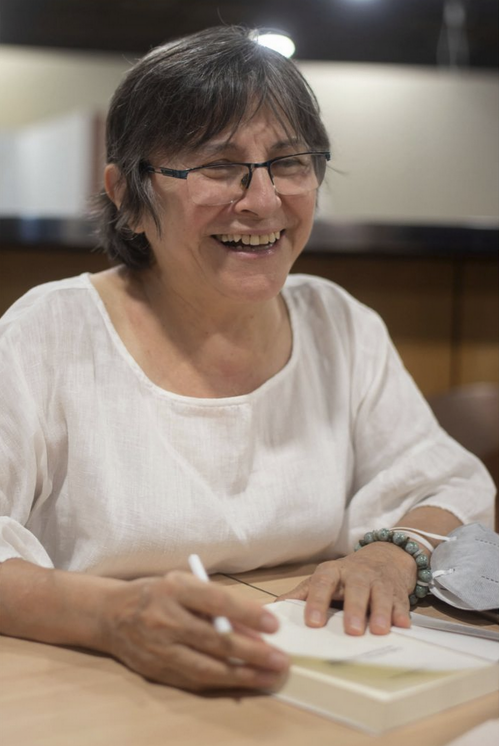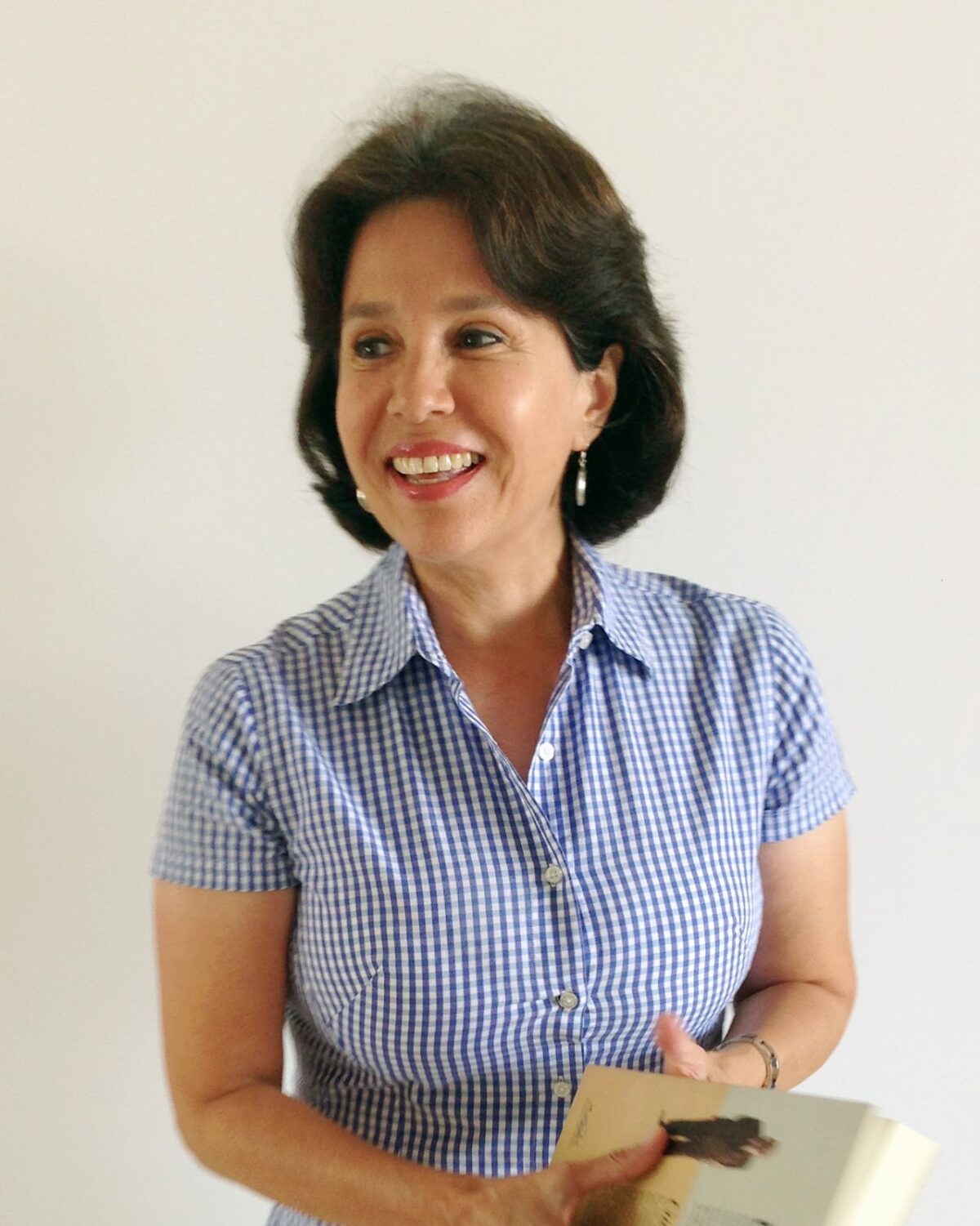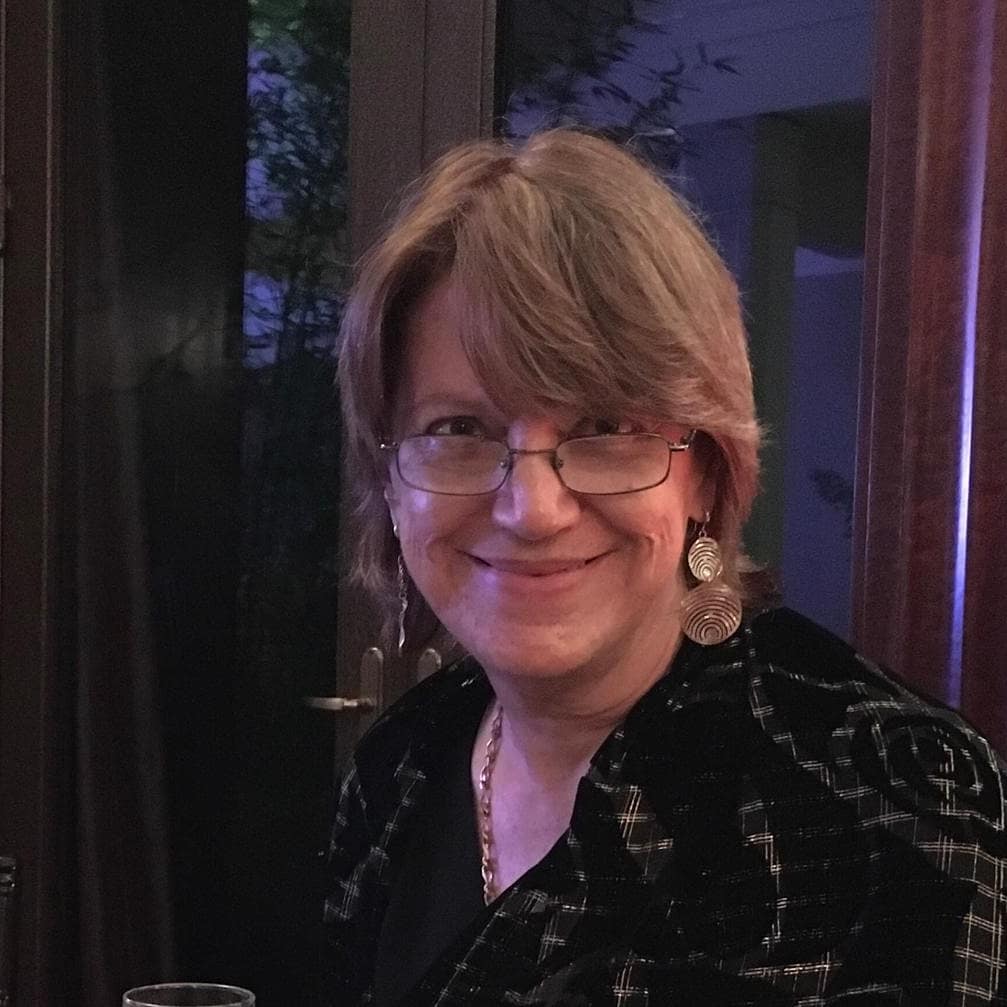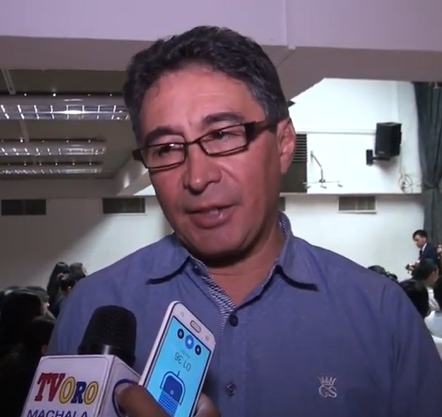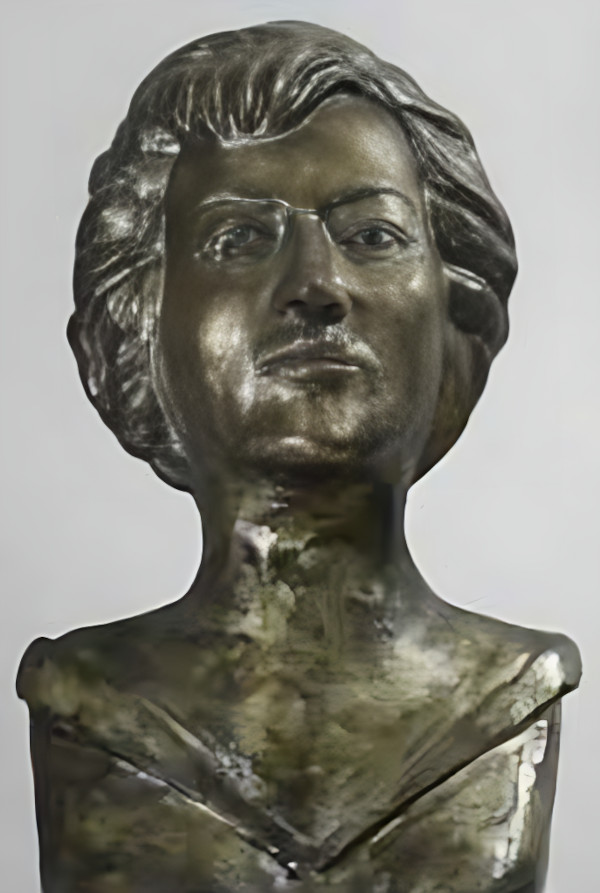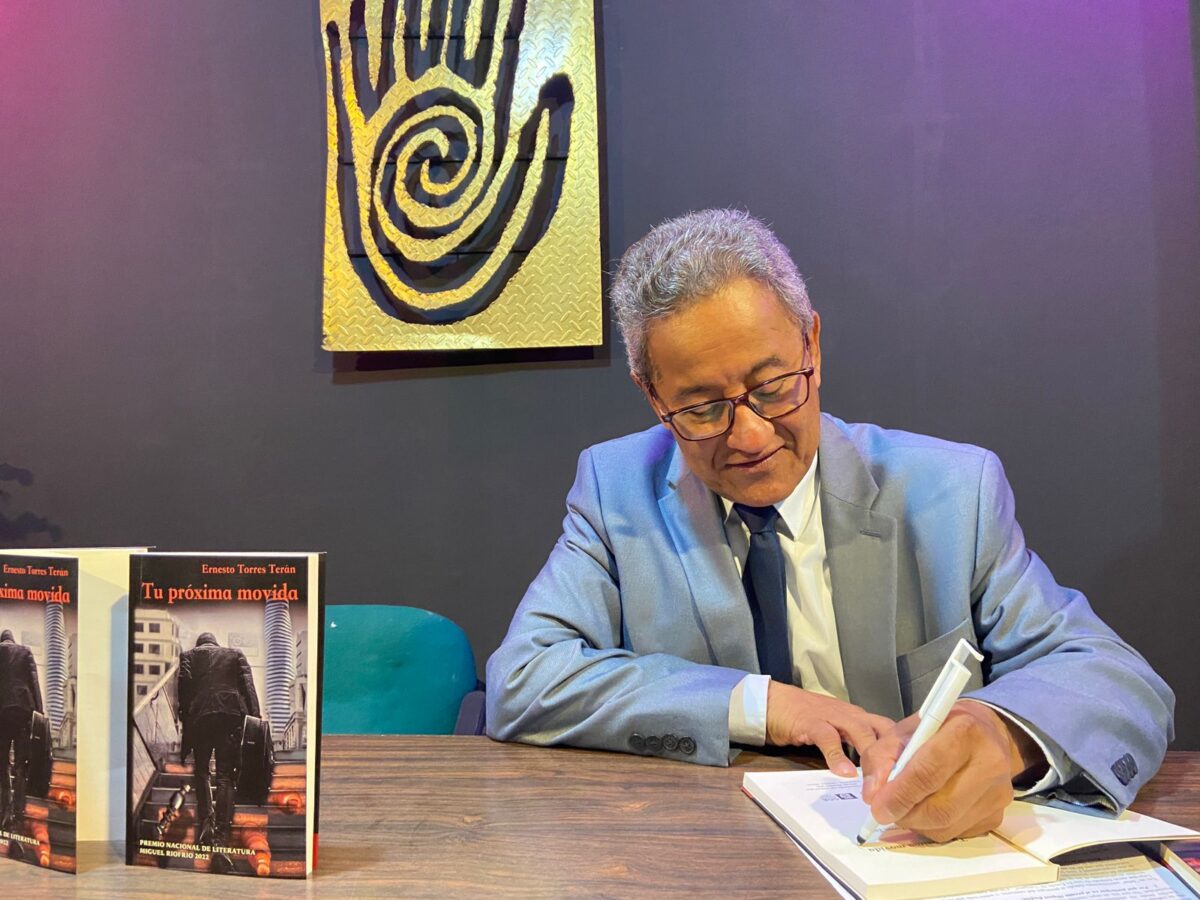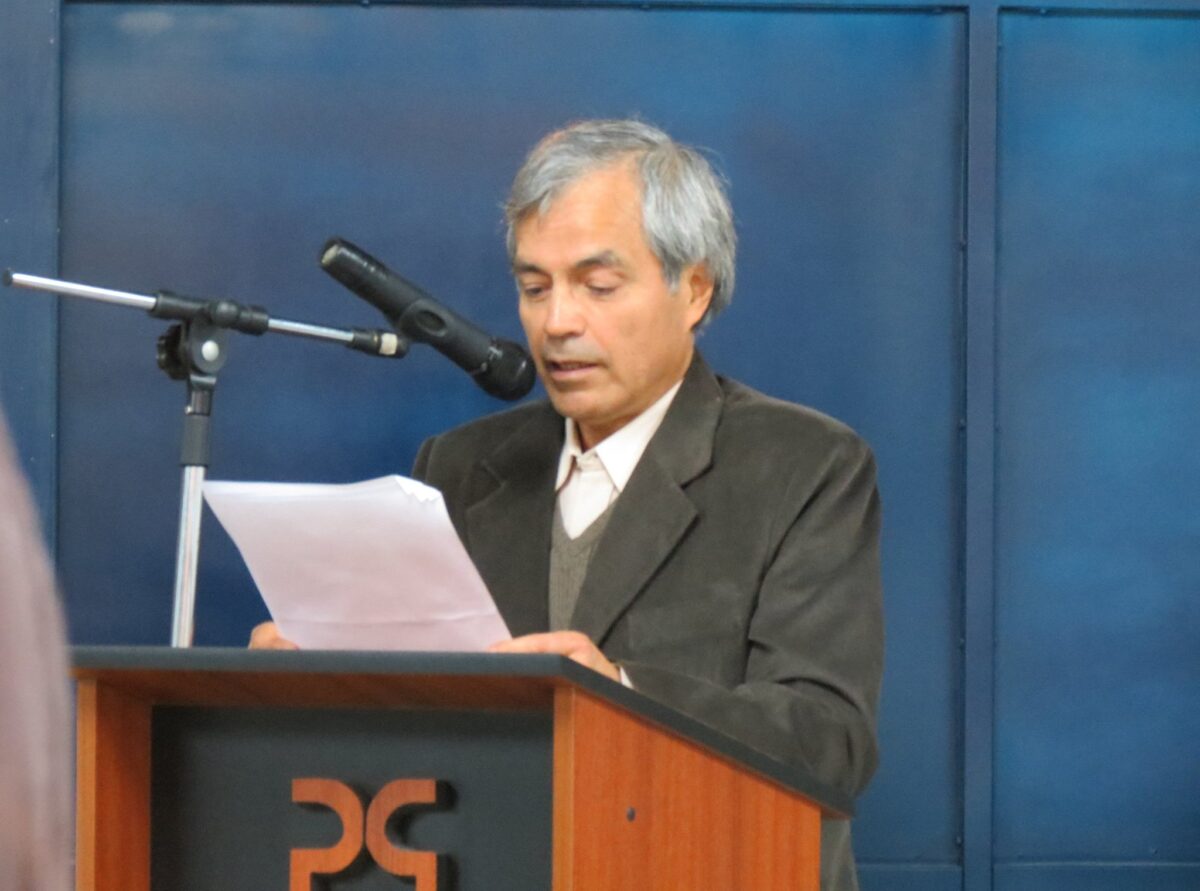María Leonor Baquerizo Díaz Granados (Guayaquil, 1960) is an Ecuadorian writer, professor, and empowerment coach. She is known for her contributions to Ecuadorian literature, particularly in the genre of short stories, where she explores psychological themes and human emotions. In addition to her literary work, she teaches at the Universidad Católica de Santiago de Guayaquil and ITS, and directs programs at Empowerment Coach Consultant. Her works, such as “Solo quería entender” and “Las grandes cosas se pierden en la niebla”, have earned her recognition as a significant figure in Ecuador’s literary scene.
Continue reading “María Leonor Baquerizo”Category: Short story writers
Martha Chávez
Martha Chávez Negrete (Guayaquil, 1967) is an Ecuadorian doctor, psychiatrist, and writer. She is known for her contributions to contemporary Ecuadorian literature, particularly in the genres of short stories and novels. Her notable works include Precisando el sentido (1999), Uno de estos tristes días virtuales (2003), and her acclaimed novel La memoria corre a mil (2008), which won third prize in the genre of novels for its exploration of memory and identity. In addition to her literary career, Chávez is also a university professor and a contributor to various literary magazines in Ecuador.
Continue reading “Martha Chávez”Renato Gudiño
Renato Gudiño (Quito, July 31, 1950) is an Ecuadorian author known for his versatility across multiple literary genres, including fiction, science fiction, psychological narratives, and noir. Educated in Ecuador and Romania, Gudiño’s works often explore themes of identity, transformation, and the human experience, drawing on his cosmopolitan background. His notable publications include La Transmutada (2004), Destino de Papel (2007), Cataplumes del Amor (2008), and El Edén de la Tenue Luz (2009), and his stories have gained international recognition, with Cataplumes del Amor being translated into Romanian as Delirul Iubirii (2014).
Continue reading “Renato Gudiño”Carolina Andrade
Carolina Andrade (Guayaquil, 1963) is an Ecuadorian writer, university professor, and journalist known for her poignant short stories and novellas. She studied in Mexico at the literary workshops of the Sociedad General de Escritores Mexicanos (SOGEM) and later earned postgraduate degrees in Education, Humanistic Studies, and Communication. Her notable works include Detrás de sí (1994), De luto (1999), and the novel A orillas de un relato (2024), which explore themes of death, existential absurdity, and human fragility. Andrade’s works have been translated into multiple languages and featured in prestigious literary anthologies.
Continue reading “Carolina Andrade”Denise Rosales
Denise Rosales (Guayaquil, 1954) is an Ecuadorian novelist and short story writer known for her only novel, Los vértices del triángulo (1994), which explores themes of love and desire through a bold narrative of a love triangle. Her work has been featured in anthologies such as Libro de posta (1983), Frauen in Lateinamerika 2 (1987), and Antología de narradoras ecuatorianas (1997). Rosales has lived in Milan, Italy, and is recognized as part of the movement of prominent Ecuadorian women writers who gained recognition in the 1980s and 1990s.
Continue reading “Denise Rosales”Martha Rodríguez Albán
Martha Rodríguez Albán (Loja, 1959) is an Ecuadorian fiction writer, literary scholar, and educator. She holds a Doctorate in Medicine and Surgery from the Universidad Católica de Santiago de Guayaquil and a Master’s in Cultural Studies from the Universidad Andina Simón Bolívar. As a fiction writer, she is known for her short story collections Nada más el futuro (1996), which won the Joaquín Gallegos Lara National Award, and Pero es después, bajo el sol (2001). In the field of literary criticism, she authored Narradores ecuatorianos de los 50: poéticas para la lectura de modernidades periféricas (2009) and Crítica literaria y sociedad en el Ecuador (1930-2000) (2022). She currently teaches at the Universidad Central del Ecuador in Quito.
Continue reading “Martha Rodríguez Albán”Marcela Veintimilla
Marcela Veintimilla Carrión (Zaruma, 1961) is an Ecuadorian short story writer who gained recognition during the 1980s. She was part of the Advanced Literature Workshop at the Central Bank/Casa de la Cultura Ecuatoriana, Núcleo del Guayas, under the guidance of Miguel Donoso Pareja. Her debut collection, Cualquier cosa me invento para ver (1989), presents introspective and experimental narratives that explore identity, personal dilemmas, and societal expectations. Her work has been included in notable anthologies.
Continue reading “Marcela Veintimilla”Livina Santos
Livina Santos (Guayaquil, 1959) is an Ecuadorian writer and educator known for her contributions to feminist literature in Ecuador. She gained recognition with her short story collection Una noche frente al espejo (1989), which explores themes such as gender roles, societal repression, and existential issues through a feminist lens. A former member of the Advanced Literature Workshop at the Central Bank of Ecuador, she has also contributed to various literary anthologies. Alongside her literary career, Santos has taught literature and led numerous literary workshops, shaping the literary landscape of Ecuador.
Continue reading “Livina Santos”Liliana Miraglia
Liliana Miraglia (Guayaquil, 1952) is an Ecuadorian writer, storyteller, and photographer known for her short stories that blend irony, humor, and subtle reflections on women’s roles in society. She was a key member of the Creative Writing Workshop of the Central Bank of Guayaquil, led by Miguel Donoso Pareja, and her works often explore the complexities of everyday life with a minimalist and ambiguous narrative style. Her notable works include “La vida que parece” (1989; The Life That Appears) and “Un close up prolongado” (1996; A Prolonged Close-up). Many of her other stories have been featured in anthologies, underscoring her significance in Ecuadorian literature of the late 20th century.
Continue reading “Liliana Miraglia”Fabiola Solís de King
Fabiola Solís de King (Quito, Ecuador, October 8, 1936) is an Ecuadorian writer, clinical psychologist, and agronomist. Known for her penetrating exploration of human psychology, her work often delves into themes of mental health, gender, and the boundaries between reality and madness. She has published short story collections such as Al otro lado del muro (1978) and Mundo aparte y otros mundos (1983), as well as co-authored the pioneering research book La sexualidad femenina en el Ecuador (1987). Her work, characterized by experimental techniques, situates her among the leading Ecuadorian women writers of the 1970s. Her stories have been featured in several anthologies, both nationally and internationally, solidifying her as a significant voice in Ecuadorian literature.
Continue reading “Fabiola Solís de King”Iván Petroff Rojas
Iván Petroff Rojas (Cuenca, 1956) is an Ecuadorian writer, poet, and educator known for his contributions to contemporary literature. A prominent figure in the “new Cuenca literature” movement of the 1980s, he has published a diverse body of work that includes poetry, short stories, and essays. His writings often explore themes such as mythology, magic, and music, with a focus on the depth of human experience. Notable works like En las formas del amor y la guerra (1989) and Fuego cruzado (2020) showcase his ability to blend cultural and social commentary with narrative art. Petroff Rojas has also been influential in the cultural scene of Cuenca, serving as the president of the Casa de la Cultura Núcleo del Azuay and teaching at the University of Cuenca. His dedication to literature and culture has made him a significant voice in Ecuadorian arts and letters.
Continue reading “Iván Petroff Rojas”Galo Galarza Dávila
Galo Galarza Dávila (Guaranda, 1956) is a renowned Ecuadorian diplomat and accomplished writer, whose career spans several decades of influential work in international relations and literature. Educated at the prestigious Pontificia Universidad Católica and Universidad Central del Ecuador, he holds degrees in Law and International Sciences. Galarza Dávila’s diplomatic journey is marked by his tenure as the Ecuadorian Ambassador to Mexico from 2006 to 2012 and pivotal roles in Ecuador’s Ministry of Foreign Affairs, including Subsecretary positions. As a writer, he has contributed significantly to Ecuadorian literature with works such as “En la misma caja” and “La Dama es una trampa.” These publications not only showcase his narrative prowess but also reflect his deep insights into social and political issues. His literary excellence has been recognized with various accolades. Galarza Dávila’s distinguished service earned him international honors, including Mexico’s Order of the Aztec Eagle, the highest award for foreigners. His career encapsulates a blend of diplomatic finesse and literary acumen, making him a prominent figure in Ecuador’s cultural and political landscape.
Continue reading “Galo Galarza Dávila”Zoila María Castro
Zoila María Castro (1907-2001) was a prominent Ecuadorian writer who, alongside Mary Corylé, Eugenia Viteri, and Carmen Acevedo Vega, stands as one of the most significant female figures in Ecuadorian literature from 1948 to 1960. Her most important work, titled “Urbe,” is a book of short stories that offers a social realist perspective on Ecuadorian immigrants in the U.S. Among her notable works are “En el norte está el dorado” and “Verónica, historia de amor.”
Continue reading “Zoila María Castro”Ernesto Torres Terán
Ernesto Torres Terán (Guayaquil, 1956) is an Ecuadorian medical doctor and prolific writer. He began his literary journey with the publication of the short story collection “Del puerto secreto” (1982), followed by “Y sin embargo se mueve” (1983) and “Territorio de fantasmas” (2006). His novels include notable works like “Asedios profanos,” for which he won the Onetti-Rulfo Prize in 1996, “Mínima gloria” (2012), and “Diecisiete ballenas en una pecera” (2014), earning him various awards. Recently, he won the Miguel Riofrío Prize for his latest novel “Tu próxima movida” (2022), further adding to his acclaim as a prominent Ecuadorian writer.
Continue reading “Ernesto Torres Terán”Oswaldo Encalada Vásquez
Oswaldo Encalada Vásquez (Cañar, 1955) is a philologist, writer of both fiction and children’s literature, and an academic. His substantial contributions to the field of linguistics and literature earned him the prestigious “Fray Vicente Solano” award, conferred by the Municipality of Cuenca on October 18, 2004. This recognition underscores his significant influence and standing in Ecuador’s intellectual and cultural domains. Throughout his career, Vásquez has served in notable positions, including professorships at the Universidad de Azuay and the Colegio Manuela Garaicoa de Calderón. Additionally, he is a distinguished member of the Ecuadorian Academy of Language, further testament to his respected status in the academic world.
Continue reading “Oswaldo Encalada Vásquez”
